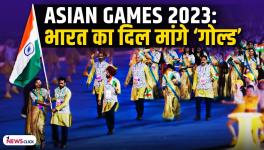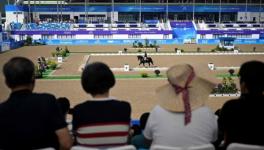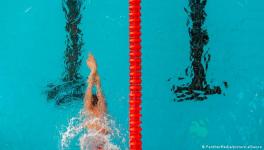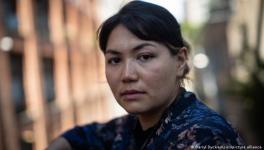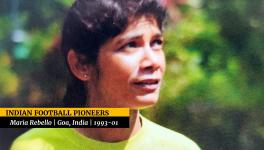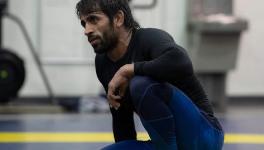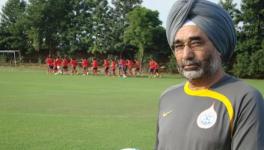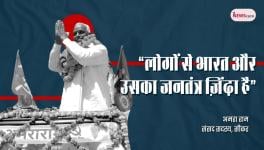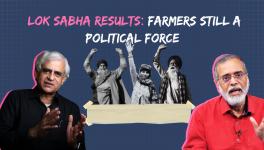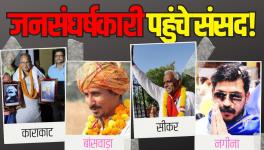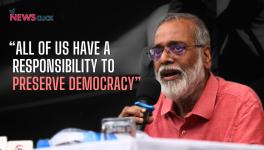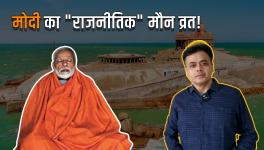Taking Play Seriously: Time to Make Sports A Fundamental Right !
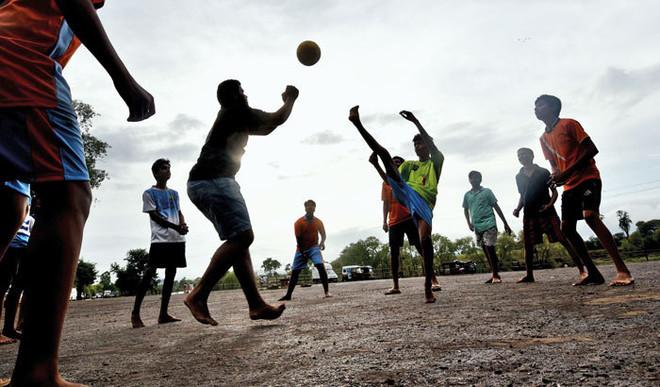
‘ ..the practice of sport is a human right. Every individual must have the possibility of practising sport, without discrimination of any kind and in the Olympic spirit, which requires mutual understanding with a spirit of friendship, solidarity and fair play…’
(The Olympic Charter, in principle 4 of its fundamental principles of Olympism, )
There are certain pieces of news which suddenly bring a smile on your face.
The well-known British newspaper the Guardian's story about the only country in the world which protects children's right to play happened to be one such story. It tells how Wales, a part of Great Britain, has decided that playing is so vital that it needs to be supported by legislation. Eight years back Cardiff (capital of Wales) parliamentarians passed a bill, which asked local authorities to "ensure sufficient play opportunities in its area for children'. Not only that, it also encourages them to seek children's opinion regarding what sort of activities they would like to undertake so that it could be accommodated in the annual play action plans. Every blueprint for a new housing scheme has to pass a scrutiny how it will affect children's play.
This story reminded one of the actual situation on the ground which had been the focus of another investigation by a leading writer, George Monbiot. In an article titled ‘Children in our towns and cities are being robbed of safe spaces to play’, he had discussed the British experience in detail. He had quoted an extract from Jay Griffith’s book ‘Kith’ to explain the situation.
“Today’s children are enclosed in school and home, enclosed in cars to shuttle between them, enclosed by fear, by surveillance and poverty and enclosed in rigid schedules of time… Since the 1970s the area in which children roam without adults has decreased by almost 90%. ..Childhood is losing its commons.”
And this has severely impacted their health. The return of Rickets in Britain- a disease of the Victorian times - was partly attributed to sunlight deficiency, which arises because children do not have enough places to play around anymore.
It is an interesting coincidence that the story about Wales - the only country in the world which takes the question of play and sports seriously - appeared a few days after the news that the highest court in India has agreed to hear a PIL seeking sports to be made a fundamental right under Article 21 A (right to education). A two-member bench of the Supreme Court - chaired by Justices S.A. Bobde and L. Nageswara Rao - has given the government a four-week deadline to provide its reply to this petition.
The crux of the petition was that 'academics and sports should go hand-in-hand' which will help a child to be better prepared to cope with the challenges of life, would boost their confidence and patience level; and it also asked the court to direct the government to bring in laws to promote sports and incorporate it into the Directives Principles and Fundamental Duties of the Constitution, and make it an integral part of the curriculum in schools.
As far as the very idea is concerned, there is a broad acceptance of the same.
UNICEF has been continuing to champion this right as fundamental to the health and growth of children everywhere. For them, it is not only a 'child's inalienable right', but it also influences physical, socio-emotional, and cognitive development. According to it, the 'right to play is protected in Article 31 of the Convention on the Rights of the Child', as well as the right to sport, which is specifically contained in other international treaties. It's take has been informed by the World Health Organization (WHO) guidelines which say that 'physical inactivity is the fourth leading risk factor for global mortality’. Evidence shows that regular participation in appropriate physical activity and sport provides all people, regardless of ability, with a wide range of physical, social and mental health benefits.
Various International Conventions or Declarations are in existence where the idea of right to sports can be found, expressly or implicitly, including the Universal Declaration of Human Rights 1948 (UNDHR), International Charter on Physical Education and Sport 1978 (ICPES), the International Convention on the Rights of the Child 1990 (CRC), International Convention on the Rights of Persons with Disabilities 2006 (RPD). For example, Article 1 of the ICPES asserts the practice of physical education and sport as being a fundamental right for all.
It is a different matter that most of the countries have not ratified them into domestic laws which could have provided individuals with a substantive right to sport. Thus, the stark truth is that despite such conventions, the right to sport is non-existent in most of the countries.
Forget ensuring this right, what we discover is a contrary picture.
Everywhere local councils are keen to take over playgrounds, property developers want to squeeze every bit of empty land to make millions of dollars out of it, and schools are devising ways and means to reduce playtime so that students can cram a few more lessons.
The Indian case seems to be one of the worst. Here, acquisition of playgrounds, gardens or every other vacant space, supposedly to turn every other city into some version of ‘Shanghai’ is resulting in the shrinking of space for kids to play or just loiter around freely at a feverish speed.
Delhi was similarly witness to the acquisition of 147 acre of land in northwest Delhi for building an 'industrial park' where the idea was to ‘[p]romote non-polluting, knowledge based, high-technology and skilled industries which would keep migration of unskilled labour to Delhi to a minimum’. However, this would result in the ‘withering away’ of the 147 acre area which had mainly been used by the locals from many adjoining villages and residential colonies as a playground till date. While it would be improper to portray these developments in the form of a simplistic binary - where right to livelihood seems to be pitted against children’s right to play - it cannot be denied that the way ‘development’ is envisaged and implemented in this part of the world, the general way of unfolding itself has been this.
Merely three years back, Mumbai witnessed permission being given to a single private company to set up 4G mobile towers in ‘parks, gardens, playgrounds and some open plots, including a playground opposite a prominent school’ and resulted in effective takeover of at least 20 gardens and playgrounds.
People were given no prior information and they came to know of the plan only when workers arrived for installing the base of a transceiver station barely 5 feet away from a children’s play area. Despite objections raised by residents fearing for the physical safety of their children, encroachment of their play space, as well as potential health hazards of mobile power radiation, the work continued unabated since the said company had been granted all approvals.
Would it be proper to say that the only people who could be held ‘responsible’ in this not so silent transformation of open spaces are the corporates or the people holding reins of power? Perhaps it would not present a balanced view of the picture. In fact, such ‘takeover’ of empty spaces, government lands or parks has also been happening with ‘consensus’ from the neighbourhood as well. The explosion of religiosity and the sprawling of temples, along with the growing unholy alliance between the ‘faith merchants’ and the law and order people is having a telling effect on such spaces, at least in several parts of the third world. This has happened despite the fact that the highest courts of the country have time and again issued warnings to the governments to curb what it calls the ‘menace of illegal shrines’.
The growing fascination for cars and lack of space for parking them in the metropolis and cities-towns around could also be said as another reason behind the open spaces and children’s parks suddenly metamorphosing themselves into ‘Parking Space’ for the neighbourhood community.
A write up in the Economic and Political Weekly also talked about how ‘[p]laying spaces are also shrinking as more and more open space is occupied by vehicles.’ Providing details about how the ‘Parks in Hauz Khas, South Extension, Paschim Vihar, Kamla Nagar and Model Town II’ in Delhi are ‘being converted into parking lots’. It underlines how with a quantum jump in the number of cars in the city, ‘parking has consumed nearly 10% of the city’s urban land, inevitably encroaching on open spaces.’
Coming back to the petition and looking at the promptness with which the judiciary has issued notices to different stakeholders in this case, one does expect a favourable judgement from it to promote sports in schools or asking the government to bring in appropriate laws; but it would be opportune here to bear in mind an earlier experience of the Delhi High Court.
More than three years back Justice Kurien Joseph of the Supreme Court had written to the Delhi High Court about the pathetic condition of children's parks in Delhi to secure children's right to play. This particular letter was converted into a PIL by the high court and it had passed an order upholding children’s right to play in parks, but it was discovered that nothing has moved on the ground yet (Times of India, Sept 12, 2015).
It was the year 1959, when under the United Nations Declaration of the Rights of the Child, right to play was recognised for the first time and the Convention on the Rights of the Child (CRC), 1989 strengthened it further. Despite clarity over the objective of the said convention which considers it to be the state’s legal obligation, and despite knowledge of the fact that how playing is important for the overall development of the child, it is becoming clearer day by day that there is a tremendous hiatus between the proclamations and the actual situation on the ground.
Perhaps it is time that the not only the policymakers but even opinion makers are reminded of a famous poem by Gabriela Mistral, a Nobel Prize winning poet from Chile, “His Name is Today” underlining the fact that what we need is a paradigm shift if we are to ensure children’s right to play.
“We are guilty of many errors and many faults,
But our worst crime is abandoning the children,
Neglecting the fountain of life.
Many of the things we need can wait.
Right now is the time his bones are being formed,
His blood is being made,
And his senses are being developed.
To him we cannot answer ‘tomorrow’
His name is Today.”
Get the latest reports & analysis with people's perspective on Protests, movements & deep analytical videos, discussions of the current affairs in your Telegram app. Subscribe to NewsClick's Telegram channel & get Real-Time updates on stories, as they get published on our website.









